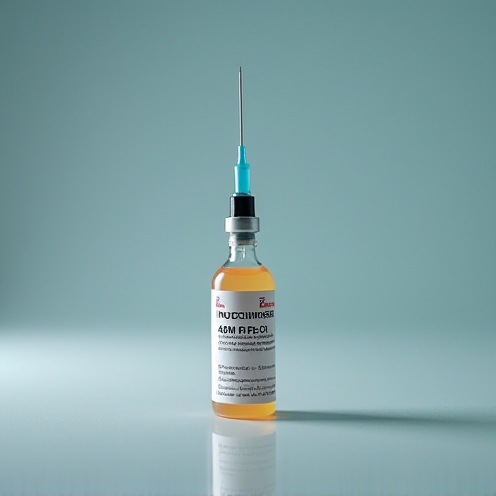Intraval Sodium Injection
Product Info
| Prescription required | Yes |
| Marketer | Rhone-Poulenc India Ltd |
| Active Ingredient | Thiopental Sodium (1000mg) |
| Storage | Store below 30°C |
| Chemical Class | Ultrashort-Acting Barbituric Acid Derivative |
| Habit Forming | Yes |
| Therapeutic Class | PAIN ANALGESICS |
| Action Class | Barbiturate |
| User Rating | 4.9 |
| User Reviews | 531 |
FAQ
Intraval Sodium Injection Reviews
Intraval Sodium is used for producing general anesthesia. It may also be used to reduce intracranial pressure.
Intraval Sodium is given as an injection in hospital settings under the supervision of a healthcare professional. It is important to provide medical history and inform your doctor if you are suffering from cardiovascular disease, asthma, or myasthenia gravis as special care is needed in administering this medicine to such patients.
Some common side effects of this medicine are skin rash or pain at the site of injection, nausea, vomiting, diarrhea, and vertigo. It may cause dizziness and sleepiness, so do not drive or do anything that requires mental focus. You should avoid drinking alcohol or taking other medications that cause drowsiness after taking this medicine as it may result in serious effects. Ensure that you practice additional pregnancy control methods as this medicine may decrease the effectiveness of birth control pills.
Intraval Sodium is given as an injection in hospital settings under the supervision of a healthcare professional. It is important to provide medical history and inform your doctor if you are suffering from cardiovascular disease, asthma, or myasthenia gravis as special care is needed in administering this medicine to such patients.
Some common side effects of this medicine are skin rash or pain at the site of injection, nausea, vomiting, diarrhea, and vertigo. It may cause dizziness and sleepiness, so do not drive or do anything that requires mental focus. You should avoid drinking alcohol or taking other medications that cause drowsiness after taking this medicine as it may result in serious effects. Ensure that you practice additional pregnancy control methods as this medicine may decrease the effectiveness of birth control pills.
How Intraval Sodium Injection Works
Intraval Sodium is a general anaesthetic. It works by causing reversible loss of consciousness to allow surgery without pain and distress.
How to Use Intraval Sodium Injection
Your doctor or nurse will give you this medicine. Kindly do not self administer.
Benefits of Intraval Sodium Injection
- In Anesthesia: Intraval Sodium is a general anesthetic agent. It works by causing loss of consciousness for a certain duration of time. This helps to carry out surgical procedures or diagnostic procedures without causing pain or discomfort to the patient. It is given as an injection by a specialist doctor called an anesthetist in a hospital setup.
Uses of Intraval Sodium Injection
- Anesthesia
Intraval Sodium Injection Side Effects

Safety Tips
Liver
CAUTION
Intraval Sodium should be used with caution in patients with liver disease. Dose adjustment of Intraval Sodium may be needed. Please consult your doctor.
Breast feeding
SAFE IF PRESCRIBED
Intraval Sodium is safe to use during breastfeeding. Human studies suggest that the drug does not pass into the breastmilk in a significant amount and is not harmful to the baby.
Driving
UNSAFE
Intraval Sodium may cause side effects which could affect your ability to drive.
Kidney
CAUTION
Intraval Sodium should be used with caution in patients with kidney disease. Dose adjustment of Intraval Sodium may be needed. Please consult your doctor.
Alcohol
UNSAFE
It is unsafe to consume alcohol with Intraval Sodium.
Pregnancy
CONSULT YOUR DOCTOR
Intraval Sodium may be unsafe to use during pregnancy. Although there are limited studies in humans, animal studies have shown harmful effects on the developing baby. Your doctor will weigh the benefits and any potential risks before prescribing it to you. Please consult your doctor.
Quick Tips
- Inform your doctor if you are pregnant, planning pregnancy or breastfeeding.
- Intraval Sodium is used to facilitate surgery without pain and distress.
- Inform your doctor if you have liver disease, thyroid disorder, severe heart disease, severe low blood pressure or a severe breathing disorder.
- It is given as an injection into veins under the supervision of a doctor.
- It can cause severe drowsiness lasting for several hours. Do not drive or do anything that requires alertness for at least 24 hours.
References
- Drugs.com. Thiopental Pregnancy and Breastfeeding Warnings.
- Chaves RG, Lamounier JA. Breastfeeding and maternal medications. J Pediatr (Rio J). 2004;80(5 Suppl):S189-S198.
